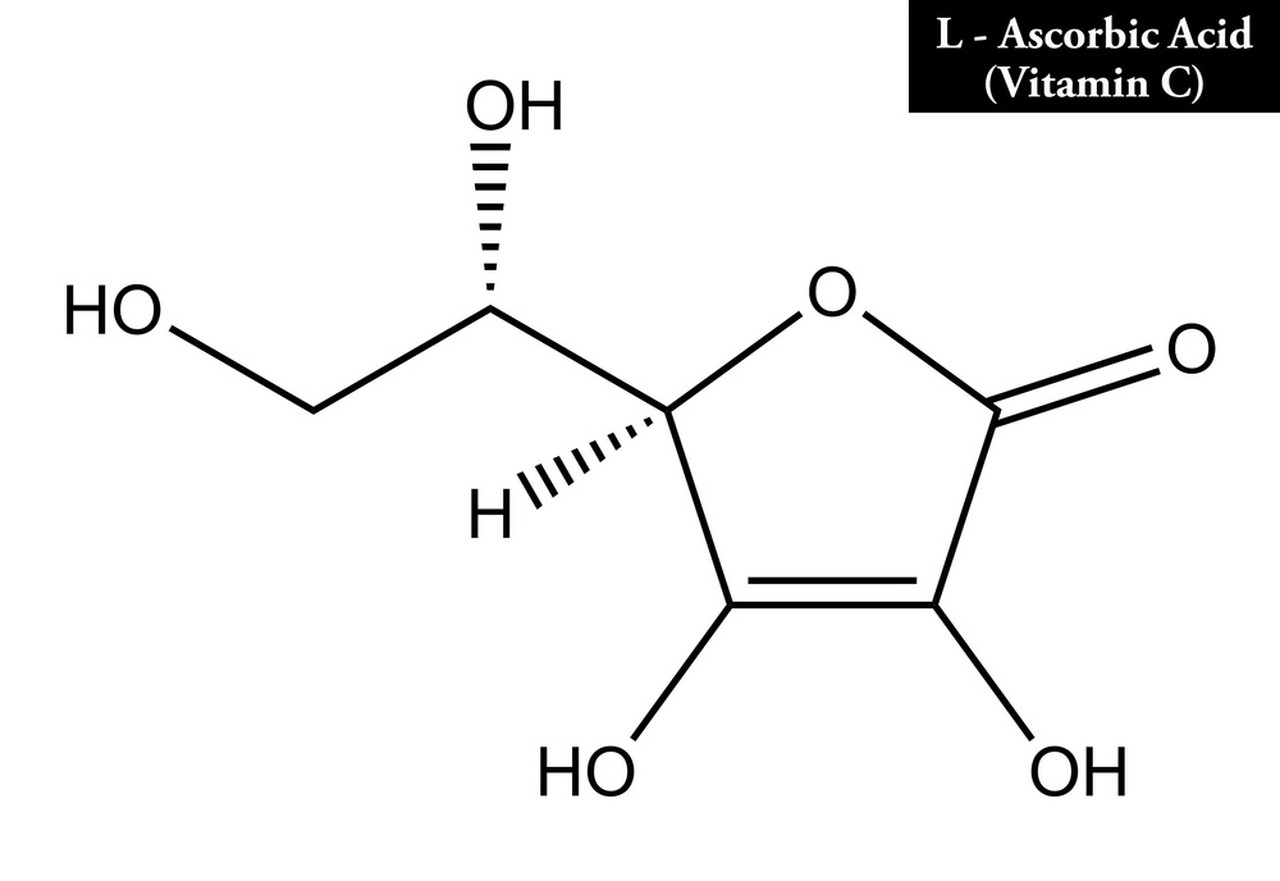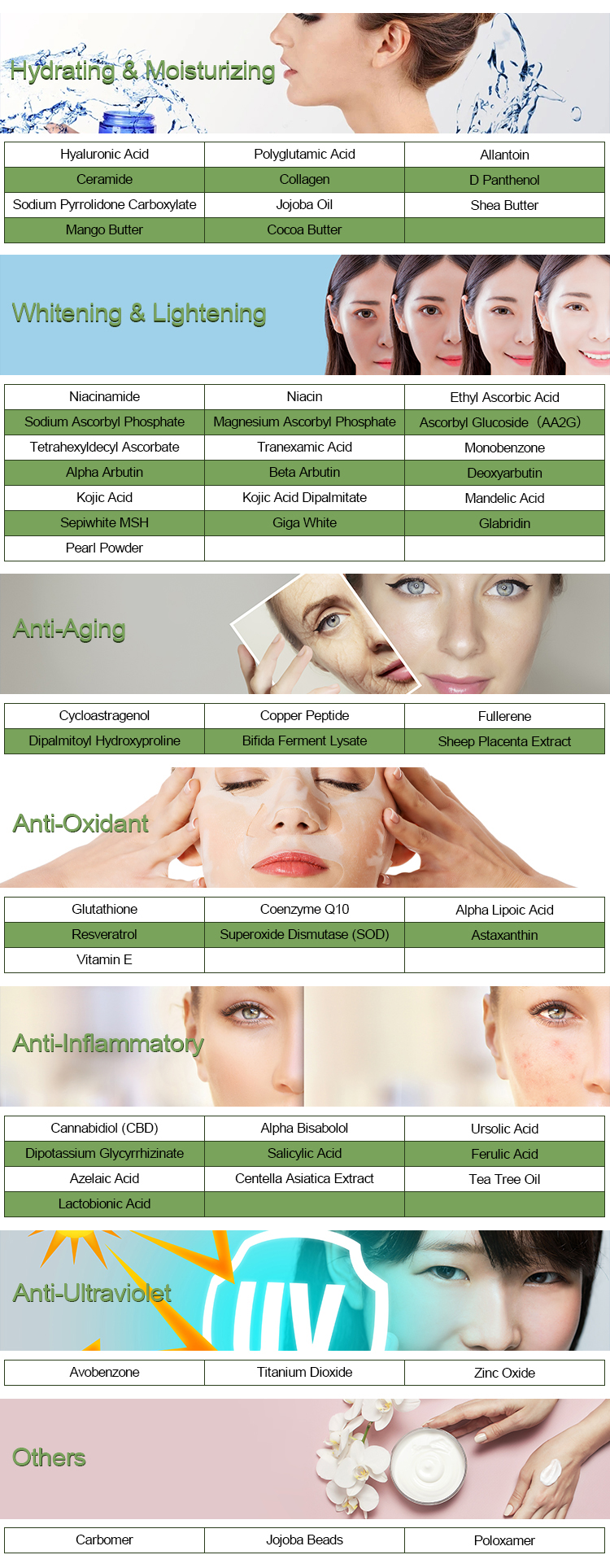Sodium Ascorbyl Phosphate (SAP) is a stable derivative of Vitamin C (ascorbic acid) that is often used in skincare products due to its potential benefits for the skin. It is typically used to address issues like skin aging, hyperpigmentation, and acne. Here’s how it is commonly treated or used in skincare:
Topical Application: Sodium Ascorbyl Phosphate is primarily used topically in the form of serums, creams, lotions, and other skincare products. When applied to the skin, it can provide several benefits, including antioxidant protection, collagen synthesis, and skin brightening.
Antioxidant Protection: Sodium Ascorbyl Phosphate, like other Vitamin C derivatives, can provide antioxidant protection to the skin. This helps in reducing the damage caused by free radicals and environmental pollutants, which can lead to premature skin aging.
Collagen Synthesis: Sodium Ascorbyl Phosphate can stimulate the production of collagen, a protein that is essential for maintaining the skin’s elasticity and preventing the formation of fine lines and wrinkles.
Skin Brightening: Sodium Ascorbyl Phosphate is also known for its skin brightening effects. It can help reduce the appearance of dark spots and hyperpigmentation, giving the skin a more even tone.

Acne Treatment: Some studies suggest that Sodium Ascorbyl Phosphate can be beneficial for those with acne-prone skin. It may help in reducing inflammation and promoting the healing of acne lesions.
Stability: One of the advantages of Sodium Ascorbyl Phosphate is its stability. Unlike pure ascorbic acid, which is highly susceptible to oxidation, SAP is less likely to degrade when exposed to air and light. This makes it a more reliable choice for skincare formulations.
When using products containing Sodium Ascorbyl Phosphate, it’s important to follow the manufacturer’s instructions for application, which may vary depending on the specific product. It’s often recommended to apply these products to clean, dry skin and to use sunscreen during the day when using Vitamin C derivatives, as they can make the skin more sensitive to UV radiation.
As with any skincare product, if you have specific skin concerns or conditions, it’s advisable to consult with a dermatologist or skincare professional before incorporating Sodium Ascorbyl Phosphate or any new ingredient into your skincare routine. They can provide personalized advice and recommendations based on your skin type and concerns
Adverse effects of Sodium Ascorbyl Phosphate
Sodium Ascorbyl Phosphate (SAP) is a stable and water-soluble derivative of Vitamin C (ascorbic acid) that is commonly used in skincare products. It is considered a milder and more stable form of Vitamin C, making it suitable for individuals with sensitive skin. While SAP is generally well-tolerated, some people may still experience adverse effects or reactions. Here are some potential adverse effects of Sodium Ascorbyl Phosphate:
Skin Irritation: Like other skincare ingredients, Sodium Ascorbyl Phosphate can cause skin irritation in some individuals, particularly those with sensitive skin. Common symptoms of skin irritation may include redness, itching, burning, or stinging. It’s advisable to do a patch test before using products containing SAP to check for sensitivity.
Allergic Reactions: Allergic reactions to Sodium Ascorbyl Phosphate are rare but possible. If you experience symptoms such as hives, swelling, or extreme redness, discontinue use and consult a healthcare professional.
Dryness or Peeling: In some cases, Sodium Ascorbyl Phosphate may cause skin dryness or peeling, especially when used at higher concentrations. This is usually a temporary effect, but you may need to adjust your skincare routine or use a moisturizer to counteract this.
Sun Sensitivity: Vitamin C derivatives like Sodium Ascorbyl Phosphate can make your skin more sensitive to UV radiation, so it’s essential to apply a broad-spectrum sunscreen daily when using these products. Failure to do so may result in sunburn or other sun-related skin damage.

Incompatibility with Certain Ingredients: Sodium Ascorbyl Phosphate can interact with certain ingredients found in skincare products. For example, it may not work well in conjunction with products that contain niacinamide. This can lead to a decrease in efficacy or potential skin flushing. Be cautious when layering skincare products and consider consulting a dermatologist if you’re unsure about ingredient compatibility.
Overuse: Using products with high concentrations of Sodium Ascorbyl Phosphate too frequently can lead to overuse and may exacerbate skin issues. Always follow the recommended usage instructions on the product label.
It’s worth noting that compared to other forms of Vitamin C, such as L-ascorbic acid, Sodium Ascorbyl Phosphate tends to be less likely to cause adverse effects. If you are concerned about potential adverse effects, consult a dermatologist or skincare professional who can provide guidance on the best products and concentrations for your specific skin type and concerns. Additionally, if you experience severe or persistent adverse reactions, discontinue use and seek medical advice.
